So here we are, 2021. I hope you had a nice New Year, even if probably a little different than in previous years. Mine certainly did. And that has nothing to do with the lockdown rules that are "still" or "again". I spent it in a way that I haven't in at least 20 years: sleeping. And I tell you, it was wonderful. It's somehow totally refreshing to wake up refreshed on January 1st of the year and know that a whole new year lies ahead of you. Even though I personally don't think much of the "new year, new me" thing, I think it's a feeling like starting a new book. In general, I think sleeping well and waking up refreshed and without an alarm clock is something that almost has a wellness character. Wonderful! Provided, of course, that you get the chance.
The Achilles Heel of Parenthood
And that brings us to the Achilles heel of parenthood: baby sleep. There is hardly a topic that is brought up, discussed and judged as often and by as many people (including those who don't have children!) as (my) baby's sleep. "And is she sleeping through the night?" "How often does she still wake up?" "Is she a 'good' sleeper?" "Stop breastfeeding her to sleep, she needs to learn to fall asleep on her own. Otherwise it's bad for her development." And my personal favorite: "She sleeps in her own bed, I assume? Otherwise you'll never get rid of her!"
Our little plum was not yet 3 months old when questions and statements like these and similar ones started raining down on us.
First of all, I would like to say to all those who are worried that I don't know any 20-year-olds who still sleep in their parents' bed. So at some point they all sleep. Alone. In their own bed.
These concerns have therefore been erased.
But why is this topic so hotly debated? I think there are several reasons for this.
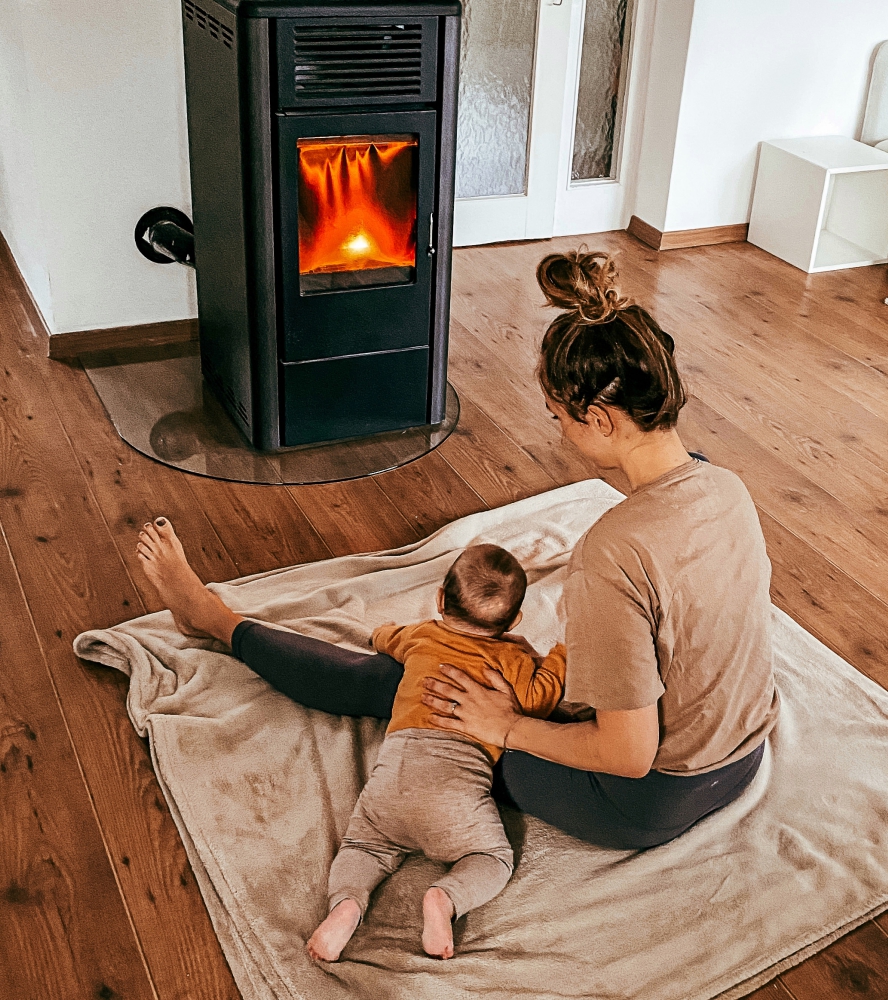
The biceps comparison among mothers
Firstly, you have to be honest and say that it's a bit like the biceps comparison between mothers. For some reason, you're incredibly proud when your child sleeps without frequent interruptions at night and without reluctance during the day. It's now been scientifically proven that how often and how long it sleeps depends to a large extent on the child's personality. Nevertheless, you secretly pat yourself on the back when it turns out in conversation with others that your child is "doing particularly well". Or you wipe the beads of sweat from your forehead in relief when you hear that you're not the only one with an alert mind at home. So it's not your own failure after all.
At the same time, it's the friend's cousin's fault that her little one isn't sleeping through the night. After all, she still breastfeeds him a lot and she's always stressed out in her day-to-day life, which can only affect her son.
The partner's grandmother is of the opinion that screaming strengthens the lungs and builds character. She proudly tells us that it only took a few days before her children stopped screaming at night. We should take an example from that.
Of course, we assume that everyone only wants the best for themselves, their children and those around them. So let's take a look at where these ideas, myths and expectations about baby sleep come from.
"In ancient times, only those who made themselves noticeable survived. Also and especially at night."
History, Biology and Science
Dear Grandma, your advice is outdated. During the Nazi era, the Bohemian-German pediatrician Johanna Haarer wrote pregnancy and parenting guides that were closely based on National Socialist ideology. They were actually passed down through the generations and can still be heard from one mouth or another today. After all, the book was written by a doctor. Heroes in white coats, as well as educators and researchers, have since refuted these questionable "let the baby cry" methods through countless studies.
We now know that it is human biology that causes our youngest children to wake up at night. In prehistoric times, only those who made themselves known survived. Also and especially at night.
In addition, especially in the first few weeks, the baby ensures that the amount of breast milk is increased by night-time breastfeeding. This is because it orders it for the entire breastfeeding period. Breast milk is also digested within a very short time, so it is not surprising that these rapidly growing little ones need a helping of milk every few hours.
You might think that pre-food, i.e. “bottle-fed babies,” sleep better and that this could perhaps be the solution?
This is also a misconception that is heard again and again and has caused one or two overtired mothers to wean their babies against their gut feeling.
But before I venture into expert territory, about which I actually only know as much as I read, I leave that to the child psychologists, therapists and sleep specialists.
I prefer to focus on the question of how we as parents in modern times can surrender to ancient biology, accept it and lovingly accompany our babies to sleep without losing our minds ourselves.
From Central Europe to Costa Rica
So if we assume, as a working hypothesis, that our babies are perfect as they are, that they will learn to sleep when their brains are mature enough and they are ready, and if we trust that this will all happen in its own time, then what is the problem?
Right in our society and its way of life, values and norms. A worldwide survey on the topic of when children are expected to sleep through the night (although the word 'sleeping through' also has different norms) showed that Central Europe and the USA were the strictest pioneers, with only a few weeks to months. In more southern cultures such as India, parents expected it to happen at around three years, and in Costa Rica it is even assumed to be five years. It is therefore quite clear that the respective culture and society has certain ideas and demands, even of our youngest members.
I think stronger intergenerational cohesion and work culture could be key aspects here.
A mother who constantly has the help of her mother/sister/grandmother and can rest during the day and does not have to manage the household and job on the side may have more understanding and strength to cope better with the sleepless nights.
What I mean is that I think we often have too high expectations of our babies, just as we do of ourselves.
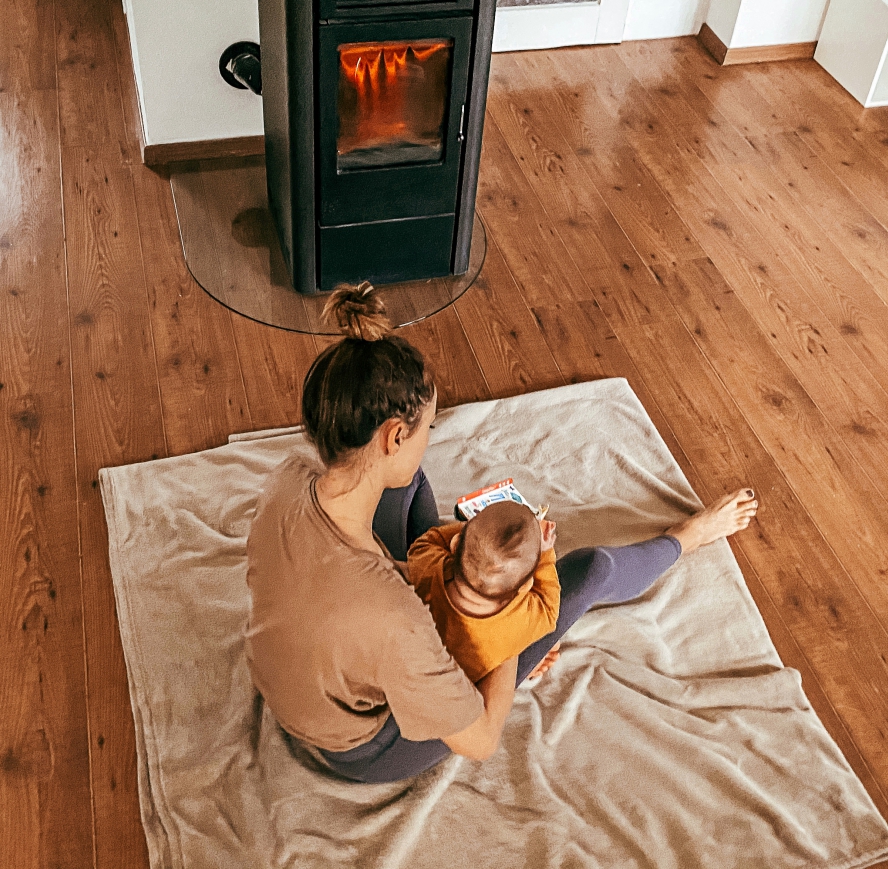
"Maybe then we could be more honest with each other and tell each other, without competitiveness and shame, that this is just how it is with small babies."
No drama, baby.
So if we could perhaps learn to be a little more lenient and understanding with ourselves and our babies, ask for help and allow ourselves to slow down in our daily lives, perhaps the nightly sleep interruptions would be a little less bad.
Maybe if the neighbor and mom's cousin could take the same step and judge less, the pressure on us mothers to have perfectly sleeping babies would be reduced. If we saw more honest social media profiles that show what life with a baby is REALLY like. That also talked about exhausting nights and desperate attempts to get down for an afternoon nap. Maybe then we could be more honest with each other. Tell each other, without competitiveness or shame, that that's just how it is with small babies. That they just don't always sleep so well. Because that's just how they are.
And maybe then everything would be a little less bad sometimes.
If you take responsibility for your own brain and dramatize the whole thing a little less, then somehow it really does work.
And no, I'm not saying that it isn't really borderline sometimes. Because it is! And yes, sometimes it is necessary to intervene and find a (bonding-oriented) solution for the whole family. It's not for nothing that there are people whose job it is to give advice and help like this.
Rather, I would like to take some of the pressure off the topic of “baby sleep.”
I would like to tell you that we also had advice. Before I became a parent, I didn't realize that there are (VERY MANY) babies who prefer to fall asleep rocking in a carrier rather than dreaming themselves to sleep alone in their cot.
I want you to know that I, and we, are doing much better since we just embraced this. And our little one is an excellent sleeper considering her needs!
One mother complains about sleepless nights, another about difficult daytime naps. Every baby is unique in his/her own special way. Even if you could say "you can't have everything", I would say "everything has its advantages!"
So the next time your overtired mind is triggered by a sleepless night or a question or conversation about it, think about which version you want to live and how you want to think about it. Your own attitude not only changes how you feel, but also how you react and talk about it. And the more honest and understanding parents we have, the easier and more natural we ALL can deal with our little ones' sleep.
Everyone as he wants
You may have noticed that I haven't said anything about bedtimes, routines, wake times, etc. That's because I believe that every family has to find their own thing, just like with everything. I've learned myself that too many cooks spoil the broth and I was often confused by too much information about "do's and don'ts."
We have now thrown all “rules” overboard and are going with our baby and our gut feeling and evaluating every day what works for us and what doesn’t.
For me, this means that in order to conserve my resources, I will now close my laptop and go to bed with my baby today.
To a peaceful night!




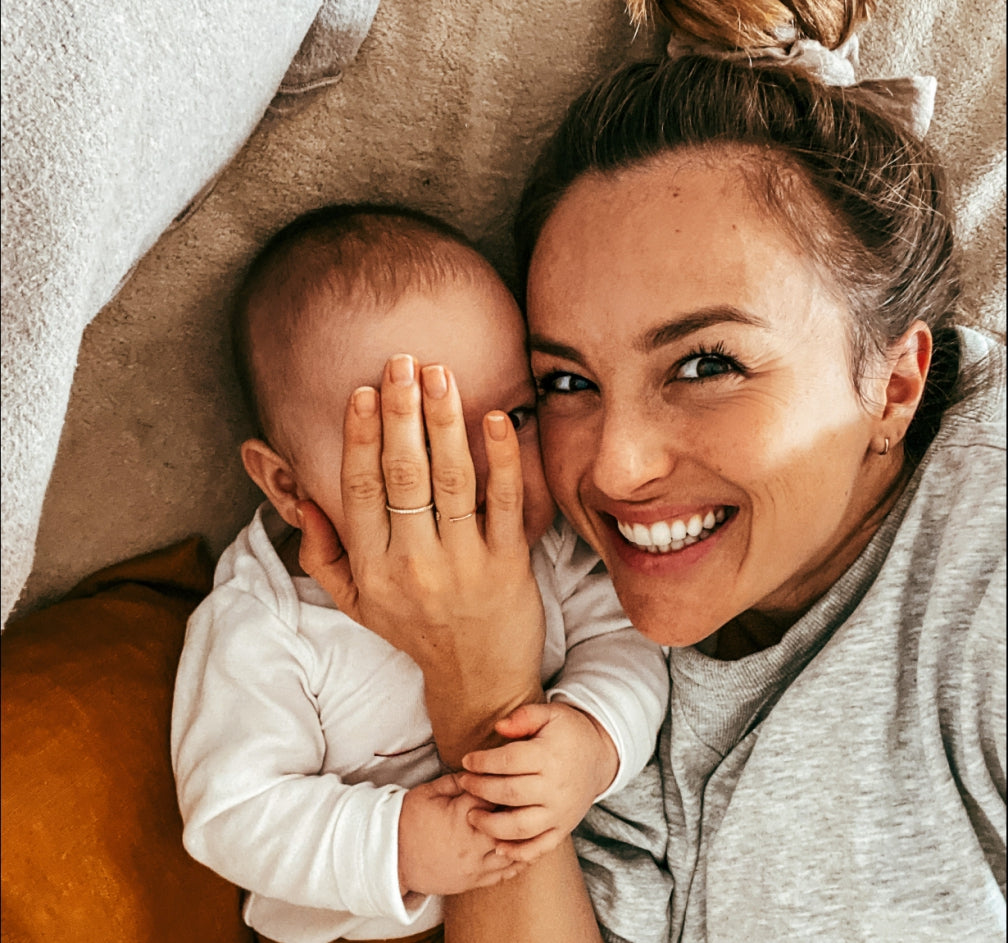
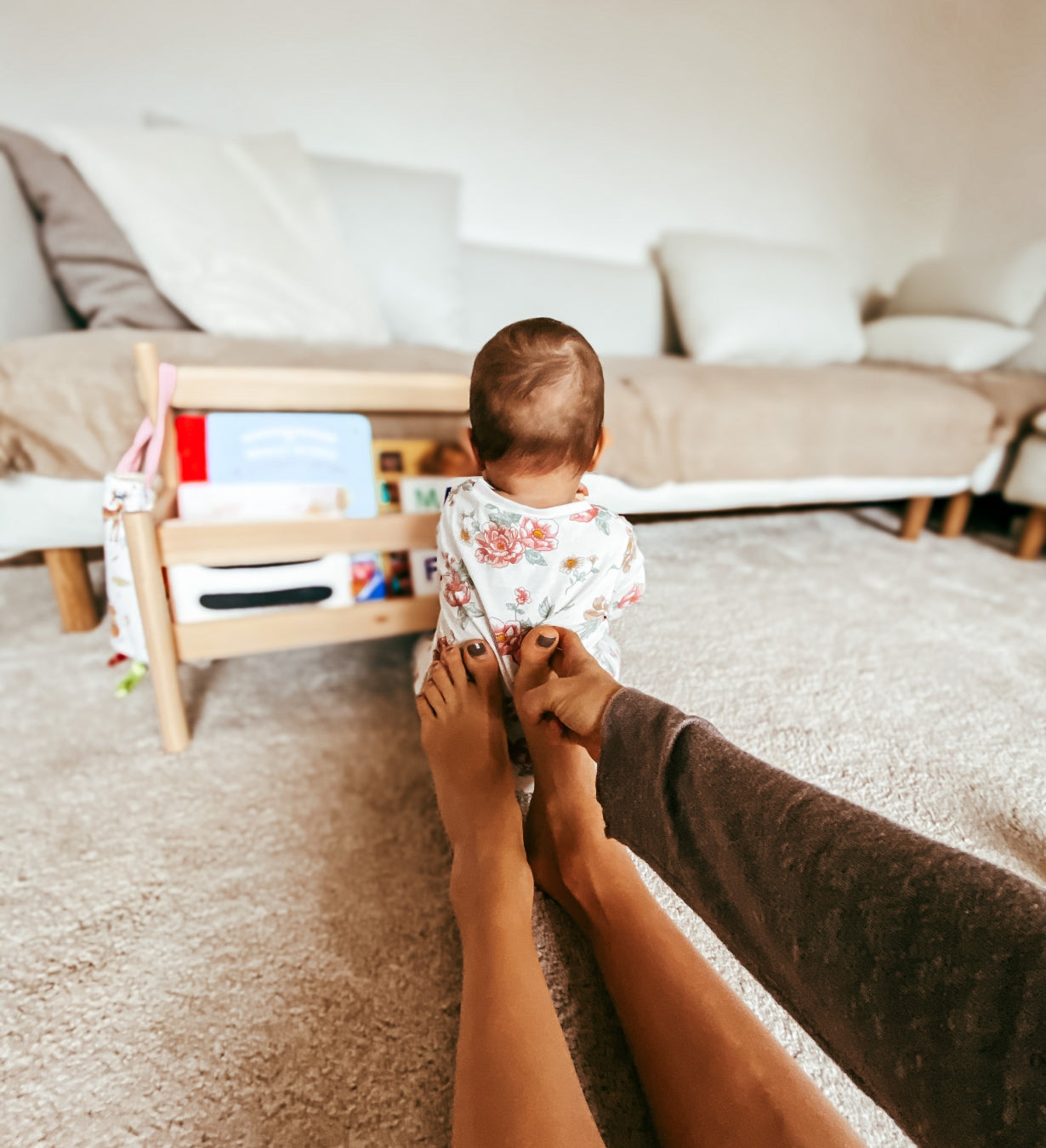
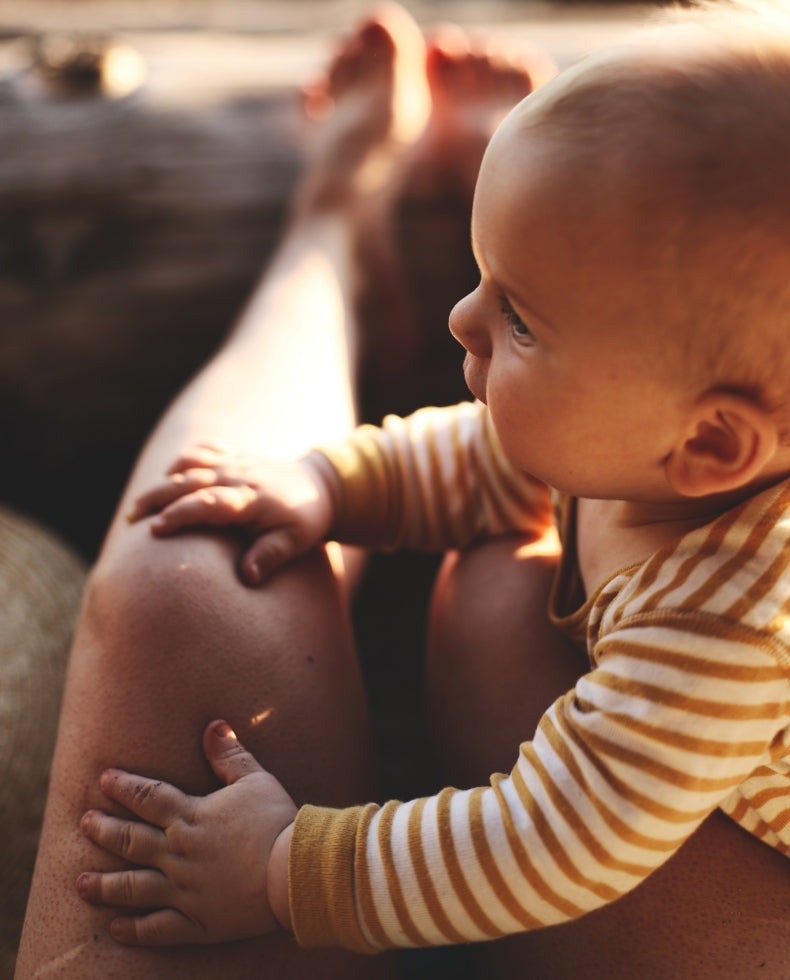
Leave a comment
All comments are moderated before being published.
This site is protected by hCaptcha and the hCaptcha Privacy Policy and Terms of Service apply.